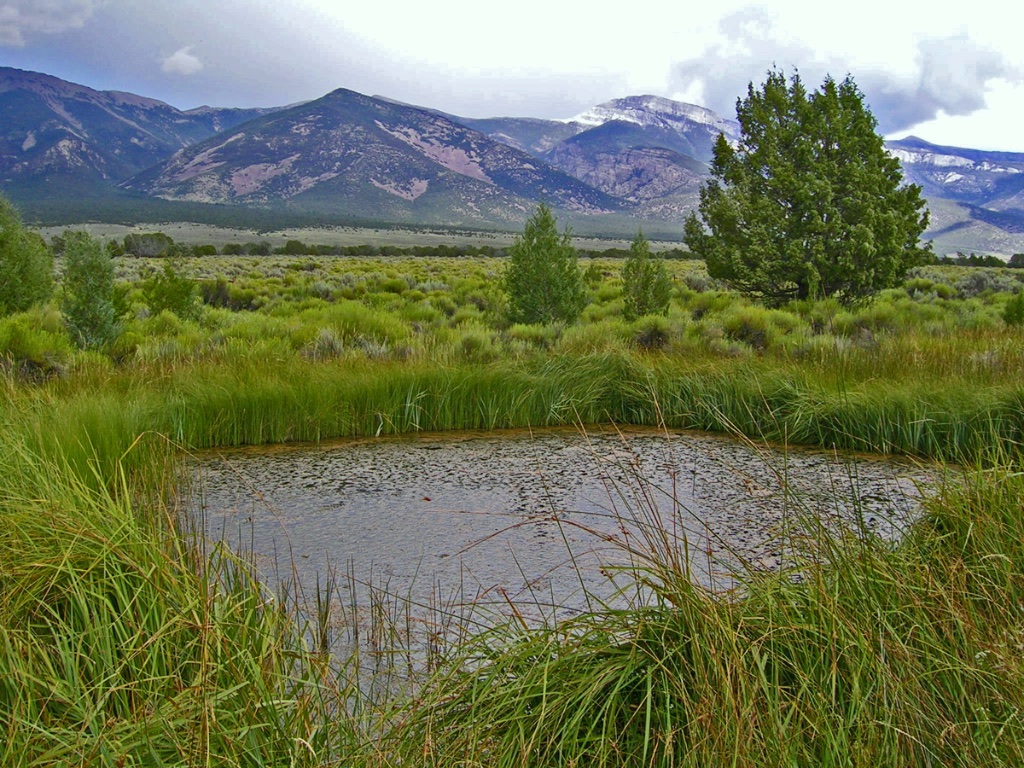AB 298 Would Redefine “Perennial Yield” and “Unappropriated Water” to Permit Groundwater Mining
The development of groundwater resources must be done sustainably — if more water is taken out than comes in, withdrawals will deplete the system; this is known as groundwater mining and is illegal under Nevada law.
This bill takes the determinations of perennial yield and unappropriated water away from technical experts in hydrology, and politicizes them by entering a new, dangerous, blanket definition in statute.
The language used in these new definitions opens the door for over-extraction of groundwater, conflicting with decades of water policy designed to prevent groundwater mining.
Far from adding clarity – this new definition would begin a new debate over every water right and at what point declines in the water table are considered “unreasonable” or “continuous.”
AB 298 Redefines “Environmental Soundness” in Ways that Threaten Existing Plant and Wildlife Communities
The definition of “environmental soundness” undermines environmental protection by failing to explicitly protect existing plant and wildlife communities, allowing for water withdrawals to radically alter habitat.
This bill also fails to recognize wildlife and plant communities that may be harmed in hydrologically connected basins, where the basin from which water is to be transferred flows into another basin.
AB 298’s 3M Plan Provisions Would Drastically Weaken Protections for Existing Rights and the Environment
Nevada law already allows for 3M Plans to avoid or eliminate prohibited conflicts between applicants and existing water rights, domestic wells, the public interest and environmental soundness. This language is unnecessary.
Court opinions have made clear that 3M Plans must be actual plans with adequate and concrete information, standards, and measures that enable the State Engineer to make an informed decision about whether the proposed plan would be effective at detecting, preventing, and if necessary mitigating (i.e., eliminating) prohibited conflicts or harmful impacts. AB 298 undermines those standards.
AB 298 also creates at least two loopholes that would exempt amendments to a 3M Plan from any judicial review. This would prevent Nevada courts from fulfilling their constitutional role of ensuring that the law is being properly implemented, and is an extremely dangerous precedent.
AB 298 Improperly Prioritizes “Mitigation Water” to Fix Conflicts
The bill does not require that an applicant demonstrate the ability to provide replacement or “mitigation” water of sufficient quantity and quality for as long as conflicts are likely to occur. The bar here should be high.
AB 298 also proposes a dangerous blanket exemption from the permitting process for any proposal to take water from another location and use it as mitigation water, endangering even more water systems and regions.
If anything, the first priority in terms of mitigation measures should be the reduction of pumping by the applicant.
AB 298 Would Drastically and Retroactively Change Water Law
AB 298 would fundamentally change, not clarify, Nevada’s water law. It opens the door to devastating long-term impacts and compromises decades of strong existing water policy principles that have protected Nevada from problems seen in California and other states.
Section 21 of AB 298 is unacceptable because it would make this bill’s radical alteration of longstanding Nevada water law retroactively applicable to past permits of water rights and pending water rights applications. This appears to be a clear attempt by SNWA to rewrite the rules after numerous losses in court based on a failure to meet prudent legal and scientific requirements.
 [photo: Shoshone Pond in Spring Valley where SNWA demands 84,000 acre-ft of groundwater each year (27 billion gallons) and nearly 200,000 acre-ft per year from 5 eastern Nevada Valleys.]
[photo: Shoshone Pond in Spring Valley where SNWA demands 84,000 acre-ft of groundwater each year (27 billion gallons) and nearly 200,000 acre-ft per year from 5 eastern Nevada Valleys.]